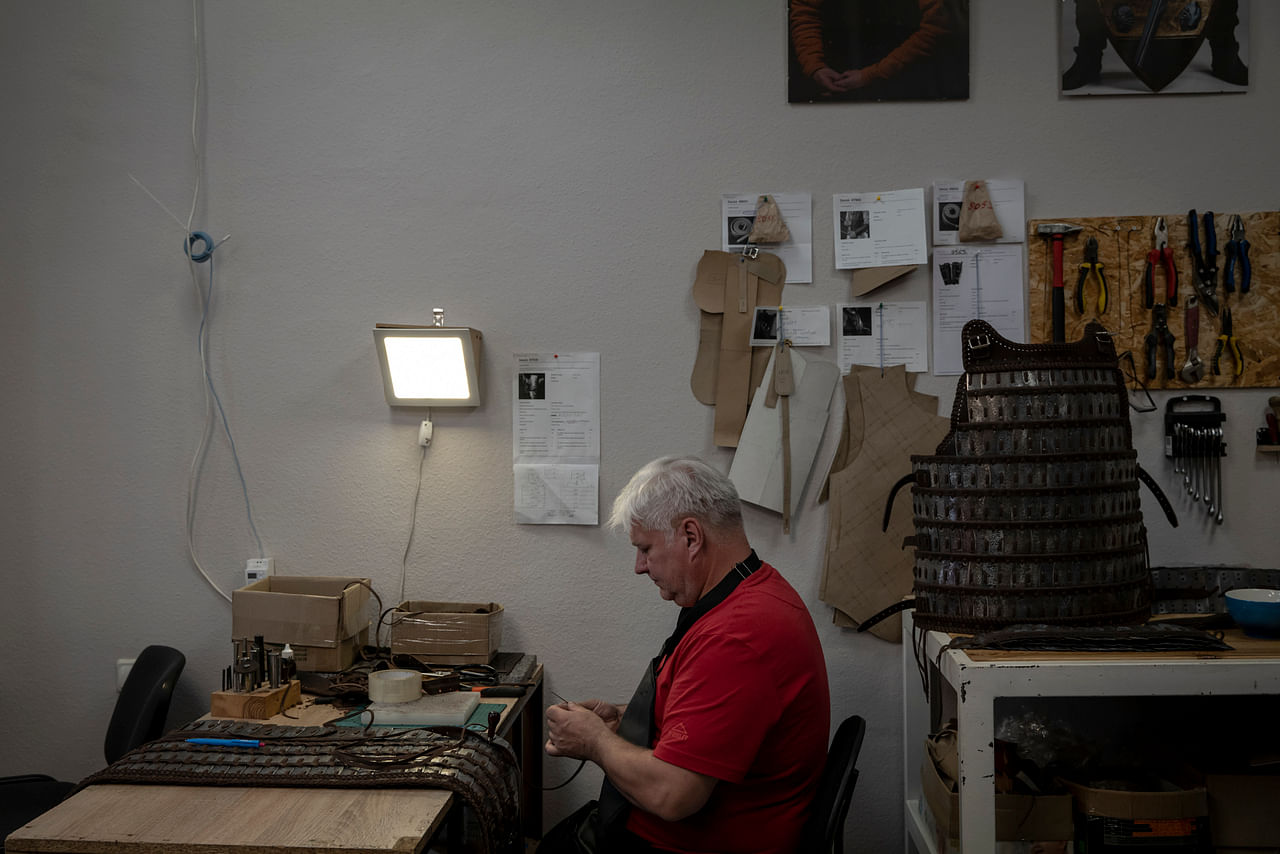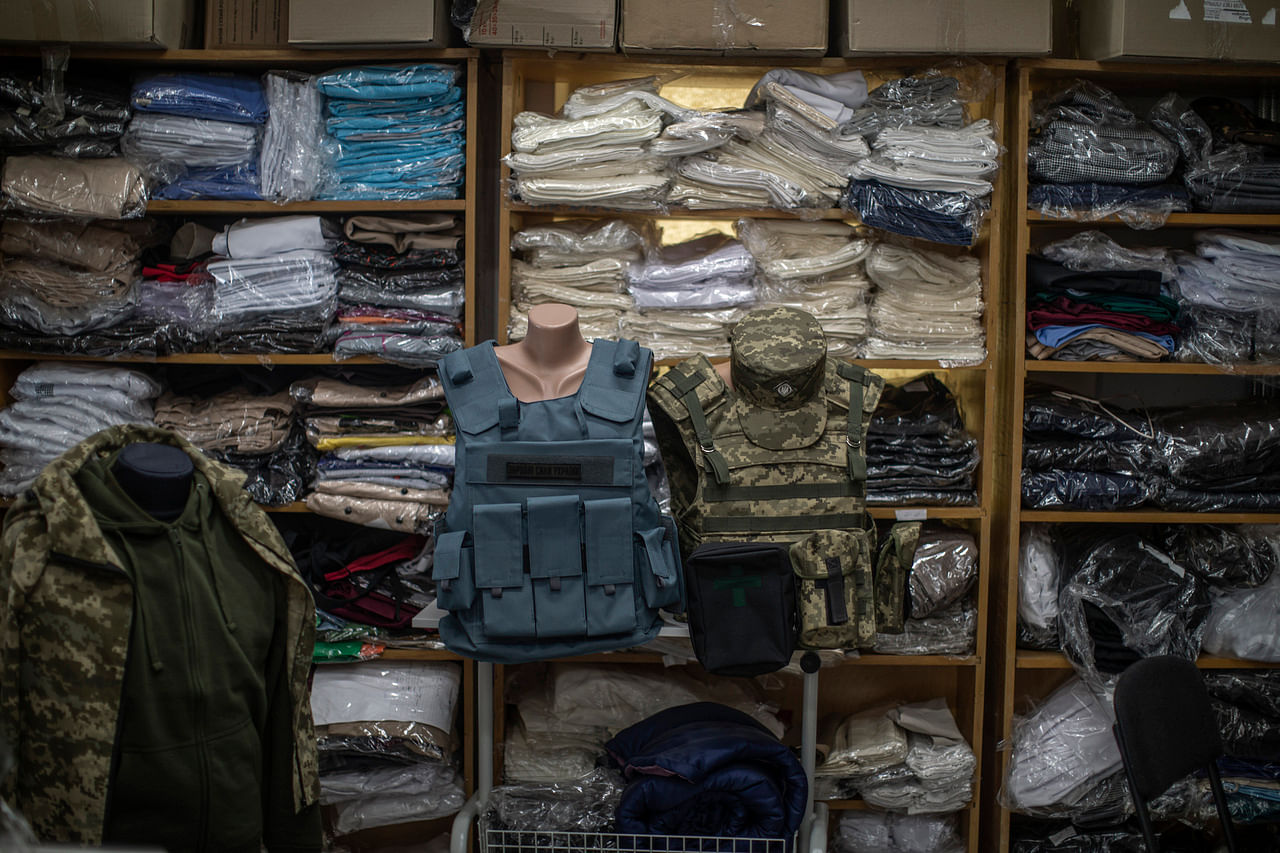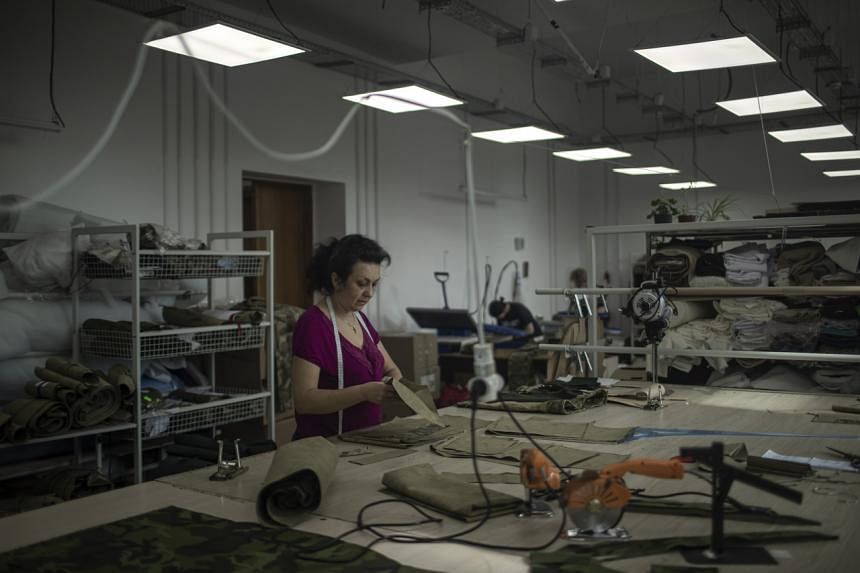LVIV, UKRAINE (NYTIMES) - Yuriy Zakharchuk once dreamed up combat costumes for the stage, designing everything from medieval armour to space battle suits.
But after Feb 24, the day Russia invaded Ukraine, Zakharchuk decided to take his business from the realms of fiction into the real world of war brought to his home city of Kyiv.
His company's transition to making body armour and helmets makes a kind of sense, he noted with a wry smile.
"We have always provided protection for every need," he said, "from the days of the Roman Empire to the fantasies of the future." More seriously, he added, his business, Steel Mastery, is experienced in developing gear that is light and suitable for long hours of wear. "We know how to make stuff comfortable," he said.
Zakharchuk, whose company of 70 workers once provided costumes for thousands of customers in Europe and the United States, is not alone in the switch to militarisation. Across Ukraine, many companies are adapting to life at war by making it part of their business.
In the southern city of Odesa, a local fashion brand had all its divisions, even its lingerie seamstresses, sewing cloth vests to fit body armour plates.
In Lviv, some of the businesses that flocked to this safer western region of Ukraine are working on installing armour on existing vehicles, military uniforms, and, more secretively, ammunition.
"We have many businesses requalifying themselves to help the army," said Volodymyr Korud, the vice-president of Lviv's chamber of commerce. "Some are even involved in weaponry, but that is something we cannot discuss," he said, for fear they could become military targets.
Many enterprises are working on a charitable basis to support Ukraine's armed forces. But increasingly, businesses are looking to establish for-profit models that they can sustain throughout the conflict - and perhaps even once it ends, with an eye on export.
Oksana Cherepanych, 36, said it was not only self-interest that fuelled her decision to redirect her company from making hotel and restaurant uniforms into a manufacturer of Ukrainian regimental outfits.
"It's also about saving jobs for our workforce," she said. "We need to motivate people to stay in our country by making sure they can find work here. That way, we support our country's economy."
Her plan has worked. Her company, Gregory Textile, based in Lviv, now has contracts to make uniforms for the Ukrainian military. She was able to save the jobs of the 40 seamstresses she had on staff, and even added 10 positions. She offered those jobs to women who fled fighting in Ukraine's east.
And though the company is only making 60 per cent of what it earned before the war, she said it is still turning a profit.
Others, like Zakharchuk, are using this moment of reinvention for missions that border on the quixotic. He is producing ceramic-plated body armour vests - a feat that involved the smuggling of a Soviet-era kiln and enlisting the help of octogenarian scientists.
Body armour typically consists of a vest made with bullet-resistant fabric that holds a plate of armour in the front and back. The simplest approach is to make the plates out of metal, a skill that would have been easy to tack on to a company specialising in costume armour. Instead, he decided to found a new venture, YTO Group, to produce ceramic body armour.

Ceramic plates are far lighter, and preferred by many military forces for the increased mobility they allow. But they require sophisticated technology and equipment to produce - none of which Zakharchuk had.
"I don't know a lot of things," he said. "But if I need something, I will find it. That's my special skill."
Nonetheless, the initiative may pay off. His YTO Group has now produced test samples. If the company can scale up, Zakharchuk aims to sell the armour for about US$220 to US$250 apiece, roughly half what it costs elsewhere, he said.
Cherepanych hopes to keep her new military uniform business, eventually spinning it off from her hotel and restaurant uniform business that she hopes to pick up again after the war.

On the sewing room floor of her trendy, brick-exposed offices, bolts of bright, colourful fabrics have been pushed to the sides in favor of olive green, beige and navy blue.
But she insisted they still keep an emphasis on style: "We want our military in something practical and comfortable - but also looks cool."
As for Zakharchuk, he is now trying to raise US$1.5 million from investors to help him repair his kiln and use it to ramp up production to his goal of 10,000 sets of ceramic plates a month. He has so far received 20 rejections.
As usual, that has not stopped him.
"We'll get 100, even 500 denials," he said. "But eventually, we'll get the money because we'll show them that we've got it."

